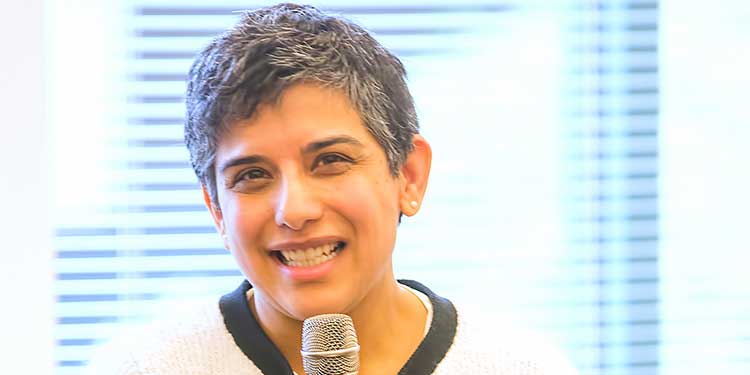Latest News
Nicotine addiction rising in youth, doctor warns
Richmond public health officer Dr. Meena Dawar warns we are on the threshold of a new age in nicotine addiction.
In an effort to keep our youth alive and healthy, Dawar spoke in detail at the Vancouver Coastal Health forum June 4 at the Richmond Olympic Oval, of an increasing problem, vaping.
What was to be a way to quit smoking has now been dressed up to look trendy and is readily available, Dawar said. Some studies seem to indicate that those who start vaping are more likely to go on to cigarette smoking.
After 30 years of accelerating declines in cigarette smoking, vaping has brought an increase in the use of nicotine for the first time in almost half a century. Dawar places the blame clearly on the availability, advertising, promotion and popularity of vaping, particularly a trendy brand called Juul.
Originally designed as a smoking cessation device where the damaging effects of inhaling smoke would be lessened with an electronic device that vapourized nicotine, vaping is promoted as trendy, marketed in a variety of “natural” fruit flavours to mask the unpleasant taste of nicotine, and advertised in many subtle ways including vans of youth at events, online sites unaffected by federal regulations and at points-of-sale.
Dawar was clear that vaping may be less harmful than smoking but that doesn’t mean it is harmless.
In fact, she listed the many ways that it can hurt growing brains and lungs. She also said little is known about what happens to the liquid chemical mix within the vial holding the multiple doses for vaping.
As the federal government did not regulate this highly addictive compound as they would a drug, sales are allowed in corner stores. While regulations exist to reduce sales to minors, Dawar said more enforcement would help cut down young people’s access to this drug delivery system.
“We have great regulations to prohibit sales to minors but they need to be enforced,” Dawar said.
She said there needs to be more restriction on product promotion and we all must continue to advocate to Health Canada to restrict the addition of flavourings and to restrict access so youth can not readily purchase these products as they do today.
“Everybody has to be involved in how we can do a good job,” she said.
Dawar said the main ingredients, propylene glycol, flavours and nicotine all interact with each other within the container and, once turned into vapour and inhaled, react with airway and lung tissue in ways that are not well-researched.
Dawar pronounced nicotine “a highly addictive substance.” The chemical nicotine, sometimes used as a pesticide, can kill living cells as well as cause cancer. Dawar urged parents to ask their offspring about their attitudes towards vaping. She suggested getting your information from Health Canada or CDC.gov websites, not the ones promoted by the two biggest tobacco producers which are also big producers of vaping chemicals and equipment.
“Be ready to correct misconceptions. It’s your job to set a positive example and if you ever smoked, talk about how hard it was to quit that addiction.”
And she urged, “Remember it’s a dialogue and not a lecture.”




























